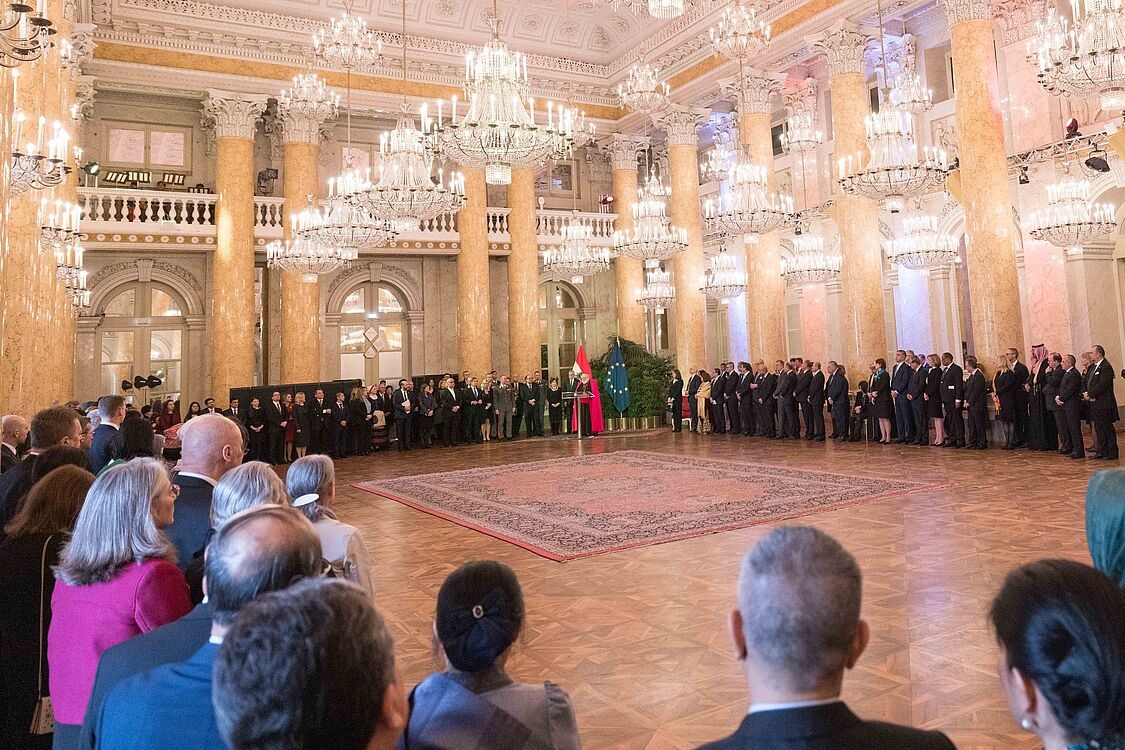Sponsored Content
New Year’s Reception for the Diplomatic Corps at Austrian Presidential Chancellory
Austria's President Alexander Van der Bellen hosted the New Year's reception for the Diplomatic Corps in the Ceremonial Hall of the Vienna Hofburg. Van der Bellen used his speech to clarify Austria's diplomatic goals and Austrian Neutrality.
 At the New Year's reception, Federal President Alexander Van der Bellen apprised the Diplomatic Corps, "Austria is not neutral to breaches of international law and war crimes." / Picture: © Österreichische Präsidentschaftskanzlei / Peter Lechner/HBF
At the New Year's reception, Federal President Alexander Van der Bellen apprised the Diplomatic Corps, "Austria is not neutral to breaches of international law and war crimes." / Picture: © Österreichische Präsidentschaftskanzlei / Peter Lechner/HBF
Austria's Federal President Alexander Van der Bellen hosted a diplomatic New Year's reception at the Hofburg. On behalf of the Diplomatic Corps, Van der Bellen thanked the Most Reverend Apostolic Nuncio for the cordial wishes for the New Year and on his second term of office.
The President of Austria used the reception to present his diplomatic goals for the new year to the…
or Log In
Fast News Search





